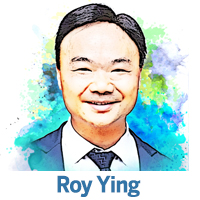Hong Kong’s job market is currently a study in contrasts. On the one hand, unemployment has risen to a 30-month high of 3.5 percent, with the government predicting further increases in the months ahead. On the other, critical economic indicators — such as GDP growth, tourism recovery, and a surge in business investments — suggest the economy is on a path to recovery.
 The reality is clear: While fresh graduates and unemployed individuals may feel the weight of significant challenges, the job market is not really shrinking — it’s just transforming. Some roles are disappearing, but new opportunities are emerging in expanding industries. The focus should be on understanding these shifts and finding ways to navigate through this evolving landscape.
The reality is clear: While fresh graduates and unemployed individuals may feel the weight of significant challenges, the job market is not really shrinking — it’s just transforming. Some roles are disappearing, but new opportunities are emerging in expanding industries. The focus should be on understanding these shifts and finding ways to navigate through this evolving landscape.
Hong Kong’s unemployment rate has risen from 3.1 to 3.5 percent, the highest in 30 months, and this figure is projected to climb further because of a confluence of structural and economic challenges. Technological advancements, particularly in automation and artificial intelligence, are reshaping industries, with repetitive jobs such as data entry, customer service, and bookkeeping increasingly being replaced by AI-driven solutions. This shift is reflected in a recent survey, in which 25 percent of employers reported plans to reduce their respective workforces in the next quarter to increase efficiency. Compounding this issue is the annual influx of tens of thousands of fresh graduates into the job market, creating fierce competition for limited positions. Additionally, geopolitical tensions and postpandemic changes in consumer spending behavior have forced companies to reevaluate operations, resulting in hiring freezes and job cuts.
The future may feel uncertain, but it is also full of promise. By navigating this changing landscape with confidence and resilience, Hong Kong’s workforce can thrive in an era of transformation. The opportunities are there — waiting for those ready to seize them
Despite the bad news, there are promising signs that the economy is steadily recovering, offering hope for job seekers. Tourism, a cornerstone of the city’s economy, is rebounding strongly, with 20 million visitor arrivals recorded from January to May this year, marking a 12 percent year-on-year increase. Similarly, exports have demonstrated robust growth, surging 14.7 percent in April compared to the previous year. Furthermore, while some businesses are closing, others are coming in.
For example, Japanese retail chain 3Coins is making its debut in Hong Kong, and local gym chain 24/7 Fitness, which now boasts 130 local outlets, is aggressively expanding. The financial market also remains a pillar of strength, with 40 initial public offerings lining up in 2025, expected to raise HK$108.7 billion ($13.8 billion), reflecting a 33 percent increase in deals and a staggering 711 percent surge in proceeds compared to the previous year. The 223,000-square-foot (20,700-square-meter) lease by global financial firm Jane Street at New Central Harbourfront Site 3 Phase 1 highlights overseas capital’s confidence in Hong Kong’s future. These indicators highlight that while some industries are contracting, others appear to be growing, offering new opportunities for those ready to adapt and seize them.
Future of work
The future of work, as outlined by the World Economic Forum’s Future of Jobs Report 2025, is undergoing a transformation globally, and many of these trends resonate strongly with Hong Kong’s evolving job market. By 2030, the world will see a net gain of 78 million jobs, with 92 million roles displaced but 170 million new ones created, and Hong Kong is no exception to this shift. In sectors driven by technology, roles such as big data specialists (+113 percent), fintech engineers (+93 percent), and AI specialists (+82 percent) will see exponential growth, aligning with Hong Kong’s ambitions to remain a global financial and technology hub.
For job seekers in Hong Kong, this underscores the need to acquire these emerging skills. At the same time, traditional sectors that emphasize human interaction, which are also critical to Hong Kong’s economy, are hiring. For instance, the city’s aging population will drive demand for healthcare and elderly-care roles, while the e-commerce boom will create opportunities in delivery and logistics, reflecting global trends. Jobs in food services and hospitality, essential to Hong Kong’s vibrant dining and tourism industries, are also expected to expand despite automation. Moreover, teaching roles, which are integral to Hong Kong’s knowledge-driven economy, will remain in high demand. These projections highlight a dual opportunity for Hong Kong: to embrace technology-driven roles while nurturing sectors that rely on human interaction. As the city navigates this transformation, job seekers who balance technical expertise with creativity, problem-solving, and adaptability will be best equipped to thrive in Hong Kong’s dynamic and evolving job market.
Adaptability key to success
Hong Kong’s job market is in the midst of a transformation. While rising unemployment and business closures present immediate challenges, the city’s economic recovery and evolving competitive landscape offer significant opportunities.
For job seekers, the message is clear: Stay adaptable, invest in lifelong learning, and embrace change. Whether through upskilling in AI and digital tools or pursuing careers in growth sectors like healthcare, education, and logistics, those willing to evolve will find themselves well-positioned for success.
The future may feel uncertain, but it is also full of promise. By navigating this changing landscape with confidence and resilience, Hong Kong’s workforce can thrive in an era of transformation. The opportunities are there — waiting for those ready to seize them.
The author is a senior lecturer at the Hang Seng University of Hong Kong, and co-chair of the Advocacy and Policy Research Committee at the Hong Kong Institute of Human Resource Management.
The views do not necessarily reflect those of China Daily.


